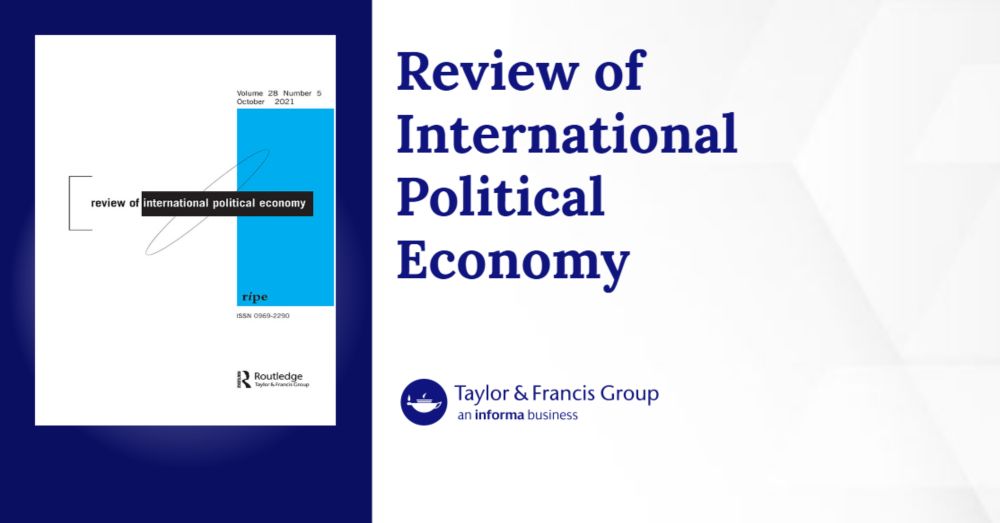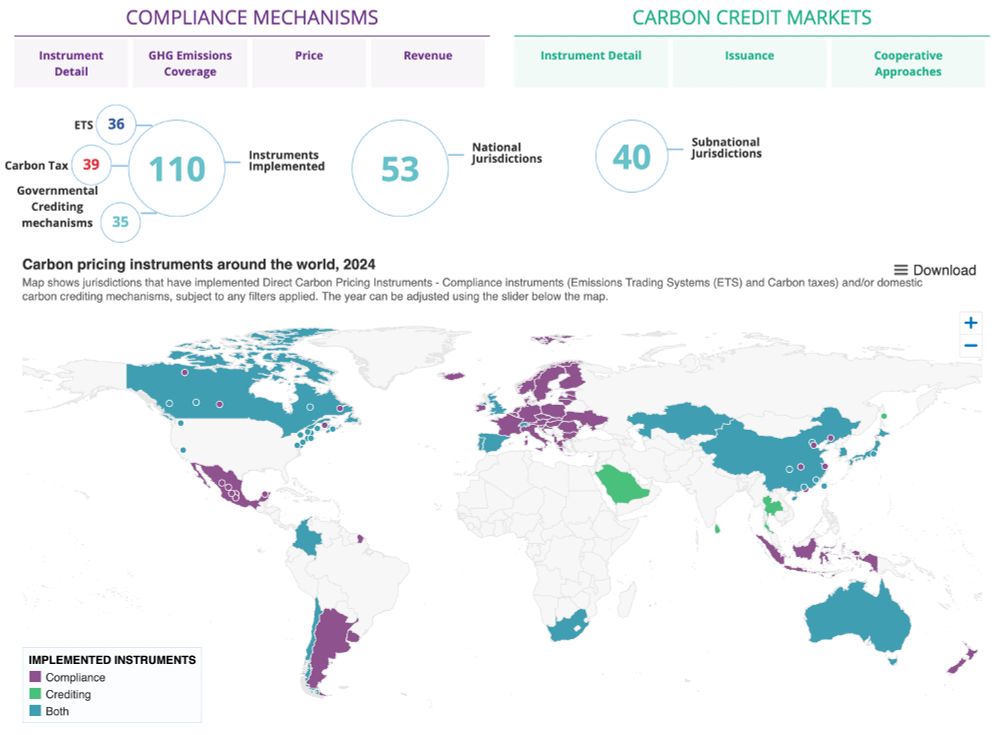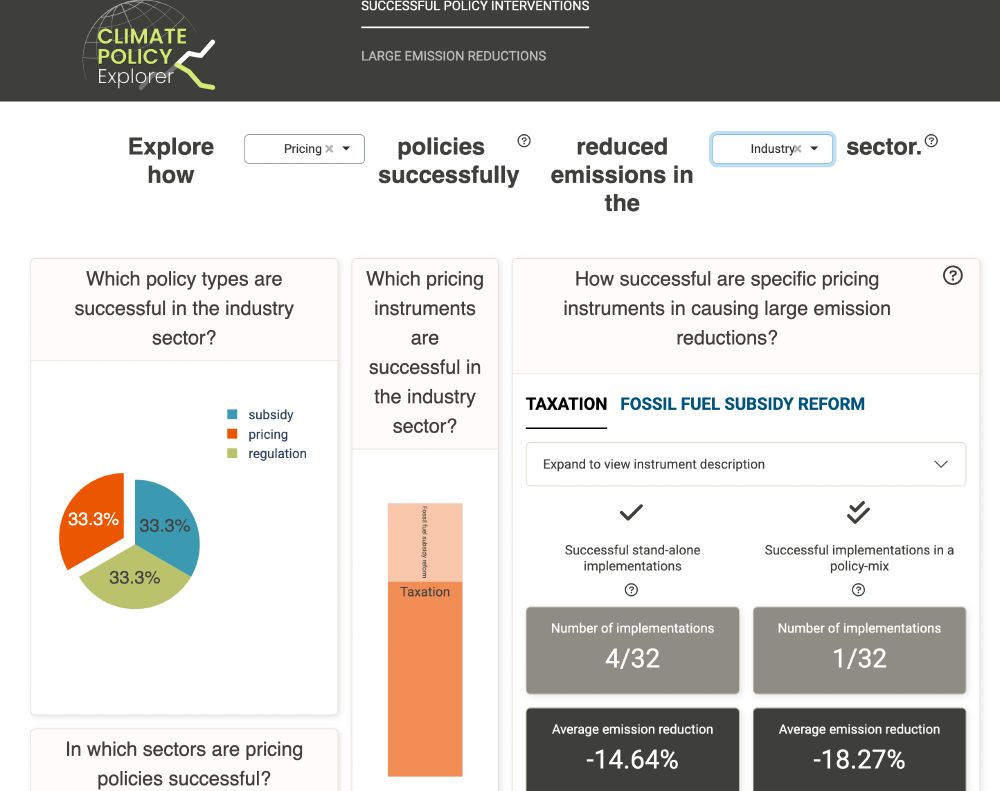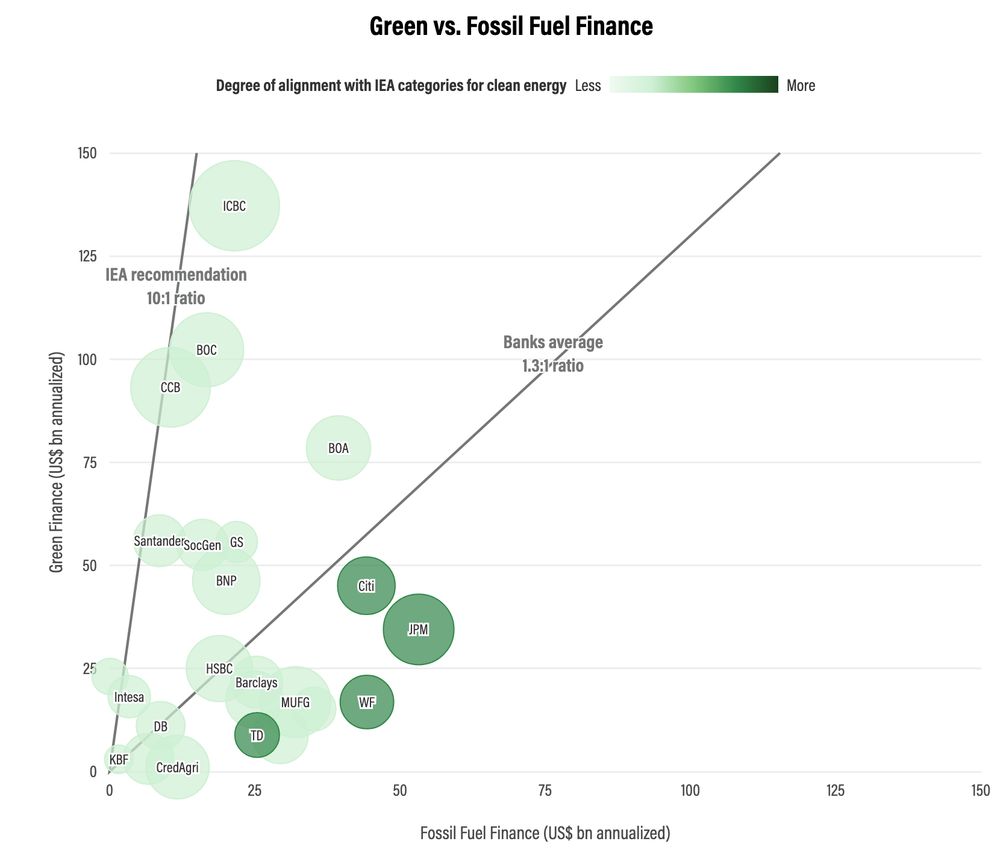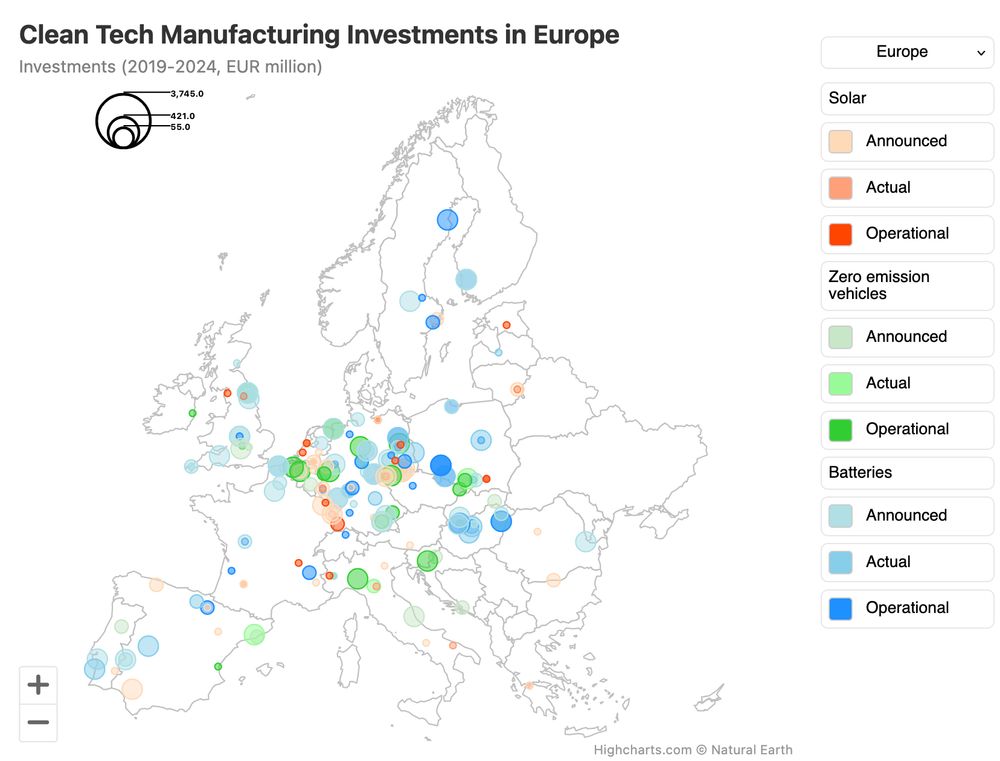3️⃣ It reconstructs how institutional entrepreneurs used the article to push for a more ambitious industrial policy in the context of state aid modernization, eventually resulting in the creation of a standalone policy instrument.
29.08.2025 07:10 — 👍 0 🔁 0 💬 0 📌 0
2️⃣ It discusses how the article evolved over the ensuing decades, remaining mostly dormant despite some discussions in the 1980s to provide more explicit guidance.
29.08.2025 07:10 — 👍 0 🔁 0 💬 1 📌 0
1️⃣ It offers a detailed reconstruction of how the 'IPCEI article' (today 107(3)(b) TFEU) emerged during the negotiations leading up to the Treaty of Rome.
29.08.2025 07:10 — 👍 0 🔁 0 💬 1 📌 0
The paper offers a deep dive into the history of the IPCEI article, from its origins in the 1950s to the 2014 IPCEI communication. Introducing the concept of institutional activation, the paper sheds light on three historical episodes.
29.08.2025 07:10 — 👍 0 🔁 0 💬 1 📌 0
It was only in 2014 that the Commission decided to 'activate' this sleeping legal resource by introducing IPCEIs as a standalone policy instrument.
29.08.2025 07:10 — 👍 0 🔁 0 💬 1 📌 0
As many have noted, the Treaty article on which IPCEIs are based goes all the way back to the Treaty of Rome but has remained largely dormant over the first decades of EU history.
29.08.2025 07:10 — 👍 0 🔁 0 💬 1 📌 0
IPCEIs have recently received a lot of attention in Europe's industrial policy discussions. For example, both the Draghi and Letta reports as well as the new Commission's political guidelines give it pride of place in Europe's emerging industrial policy edifice.
29.08.2025 07:10 — 👍 0 🔁 0 💬 1 📌 0

🚨 New paper in JCMS: Journal of Common Market Studies: 'Waking a Dormant Legal Resource. Institutional Activation and the Origins of Important Projects of Common European Interest' (with Henrique Lopes Valença).
🔗 onlinelibrary.wiley.com/doi/10.1111/...
🧵 👇
29.08.2025 07:10 — 👍 4 🔁 0 💬 1 📌 0
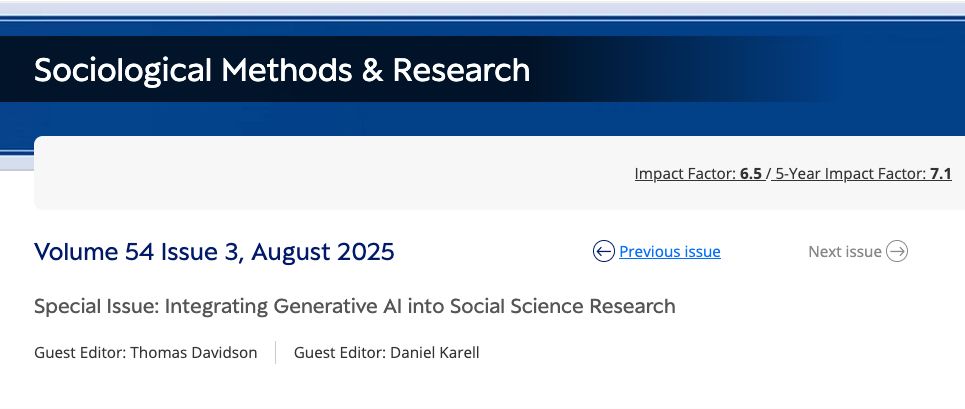
A screenshot of the Sociological Methods & Research website showing the special issue title
I’m delighted to share that the August 2025 special issue of Sociological Methods & Research on Generative AI is out now. Along with my co-editor, Daniel Karell, we put together this issue to build on the conference we organized last year.
Here's a thread on each of the ten papers:
01.08.2025 14:53 — 👍 75 🔁 31 💬 3 📌 5
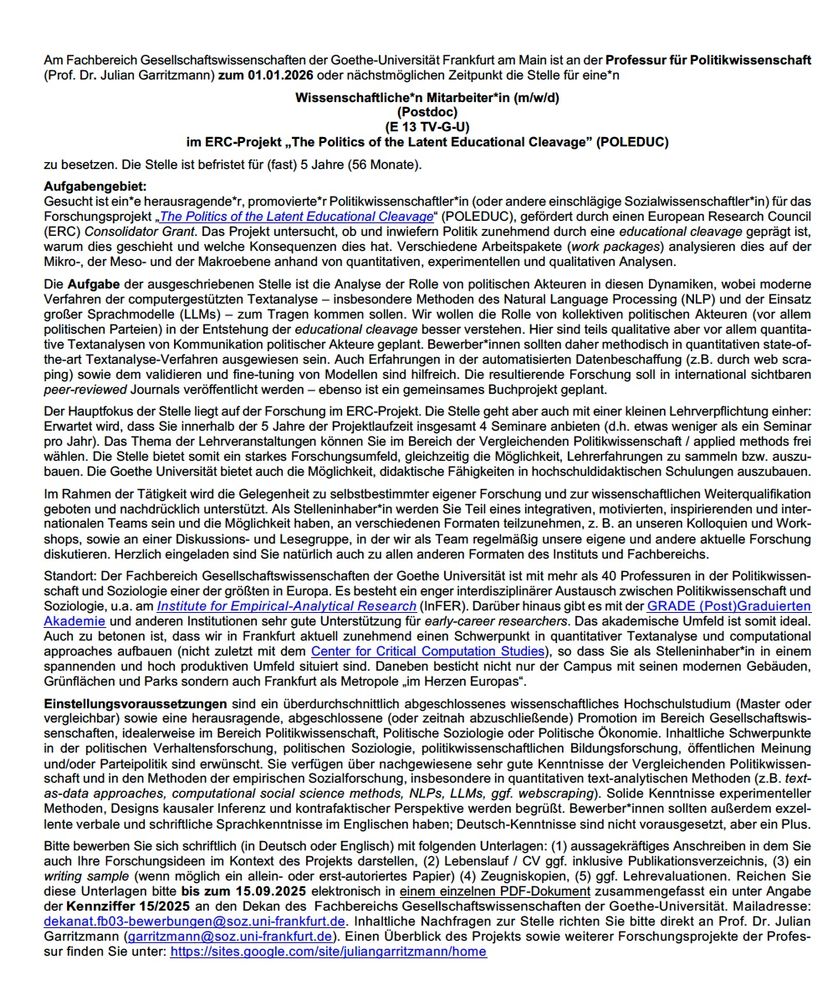
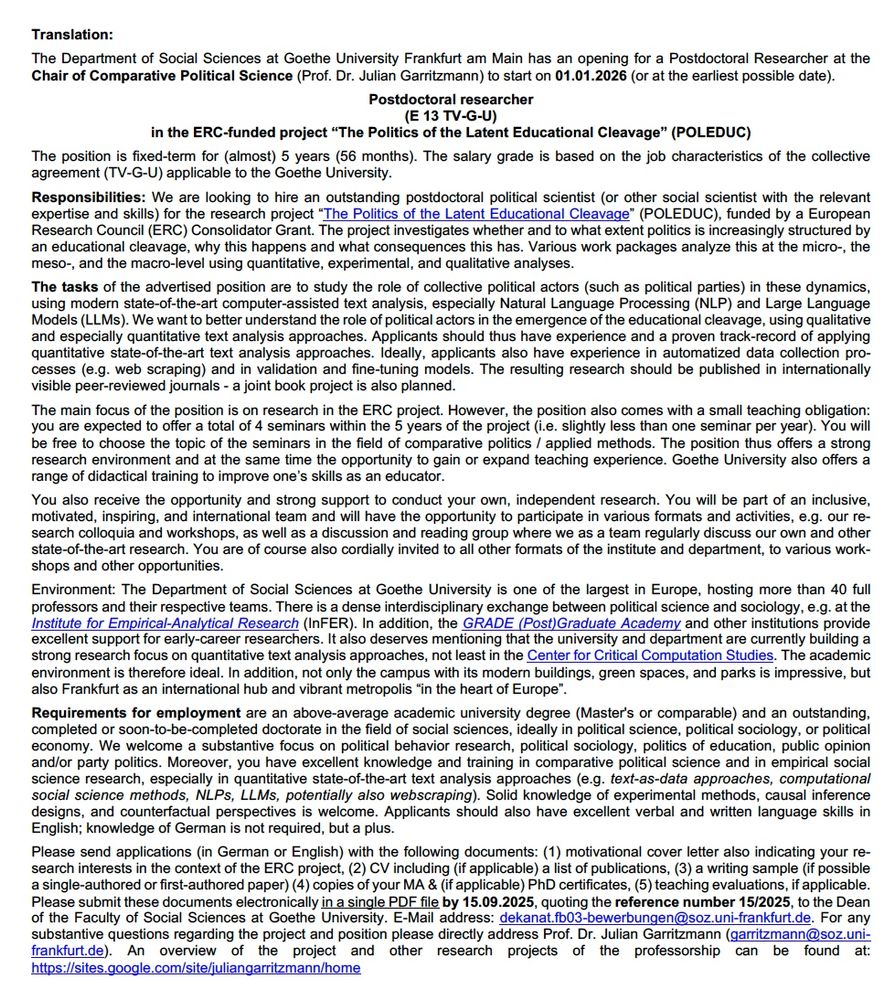
I'm hiring another postdoc (research-focused, for almost 5 years) for my @erc.europa.eu project on the educational cleavage!
I'm looking for someone with strong quantitative text-analysis skills (e.g. #NLP, #LLM, etc.) to study the role of political actors in cleavage formation.
25.07.2025 12:37 — 👍 90 🔁 74 💬 1 📌 4
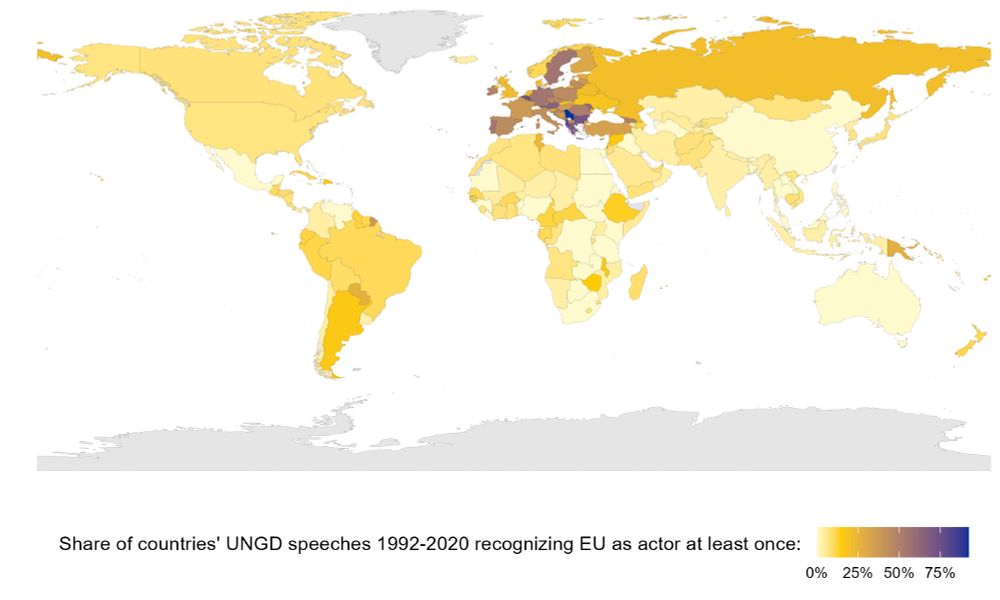
🤔 The #EU 🇪🇺 aspires to be a global actor 🌍 — but do other states recognize it as such?
My new study in @intlinteractions.bsky.social develops targeted #NLP / #TextAsData tools to analyze 50 years of foreign policy discourse in the annual #UN General Debate (1970–2020).
A thread (1/n)
16.07.2025 07:57 — 👍 45 🔁 15 💬 1 📌 3
Congratulations @luukschmitz.bsky.social and @timoseidl.bsky.social, winners of the JEPP Best Paper Prize 2024! 💐
Read the open access paper 'Moving on to not fall behind? Technological sovereignty and the ‘geo-dirigiste’ turn in EU industrial policy' here: s.gwdg.de/LMomqf
02.06.2025 07:19 — 👍 8 🔁 2 💬 0 📌 0
It was a daunting task that Antoaneta Dimitrova and I took on.
But we reached a compelling conclusion, I believe: “Moving on not to fall behind” was the best article in @jeppjournal.bsky.social in 2024
Much deserved congrats to @timoseidl.bsky.social and @luukschmitz.bsky.social
30.05.2025 16:08 — 👍 7 🔁 2 💬 2 📌 0
Thanks so much Ben, means a lot coming from you!
30.05.2025 18:13 — 👍 1 🔁 0 💬 0 📌 0
Super happy, deeply honored, and a little humbled to win this award!
JEPP has always been one of my favourite journals, not just as an author, but also as a reader, reviewer, and even SI editor—so this one is especially dear to my heart!
Many thanks to the jury, the editors, and my co-author Luuk!
30.05.2025 12:58 — 👍 18 🔁 3 💬 1 📌 0
„Die Hermann-Hesse-Bahn kostet insgesamt 180 Millionen Euro (…). Von den 180 Millionen Euro werden 80 Millionen Euro allein für den Artenschutz aufgewendet, weitere, zusätzliche 25 Millionen Euro kosten die Gutachten.“ —schon einfach Wahnsinn…
#teamabundance
22.05.2025 06:07 — 👍 1 🔁 0 💬 0 📌 0

Postdoctoral Research Associate - EU Forscher*in - (salary level E 13 TV-L, 100 %)
#jobs 🚨🚨🚨
4 postdocs in Münster:
stellen.uni-muenster.de/jobposting/5...
I‘m involved in one appointment. More details will follow soon!
14.05.2025 18:43 — 👍 38 🔁 36 💬 1 📌 2
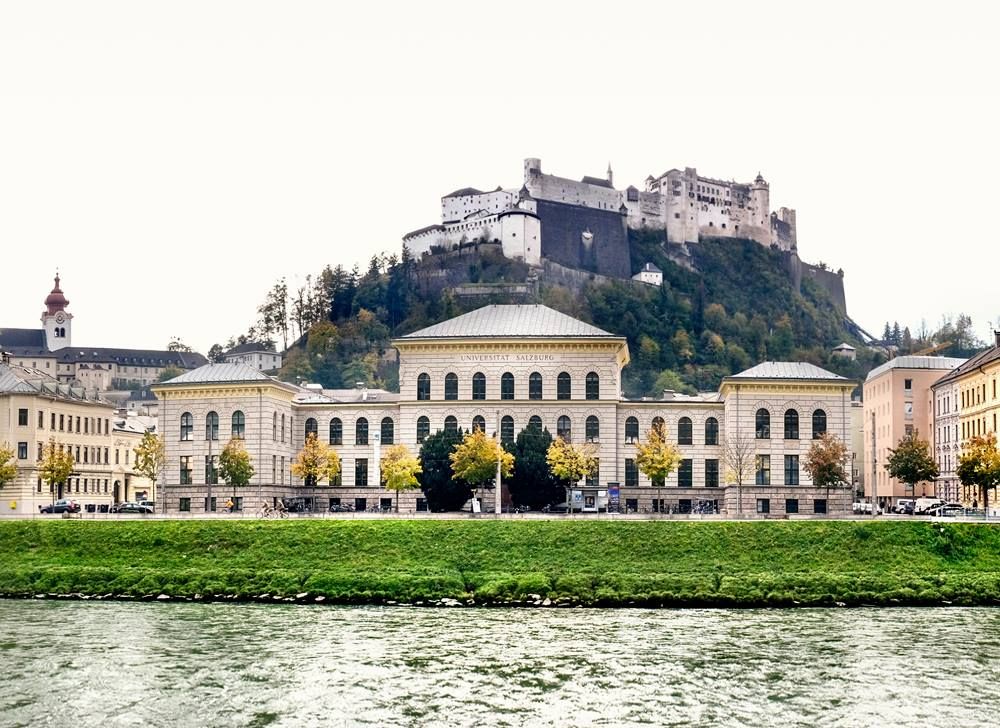
We are inviting applications for a 4-year PhD position in International Relations at the @unisalzburg.bsky.social.
Requirement: MA in Political Science or a closely related social science
Application deadline: 2 June 2025
For more details, see tinyurl.com/5ew3auby
#Polisky #poliscijobs
07.05.2025 19:08 — 👍 46 🔁 39 💬 2 📌 4
Maybe try again, I’ve received applications today so the platform should be live. If it does not work, shoot me an email but it’s the only way to apply.
05.05.2025 16:49 — 👍 1 🔁 0 💬 1 📌 0
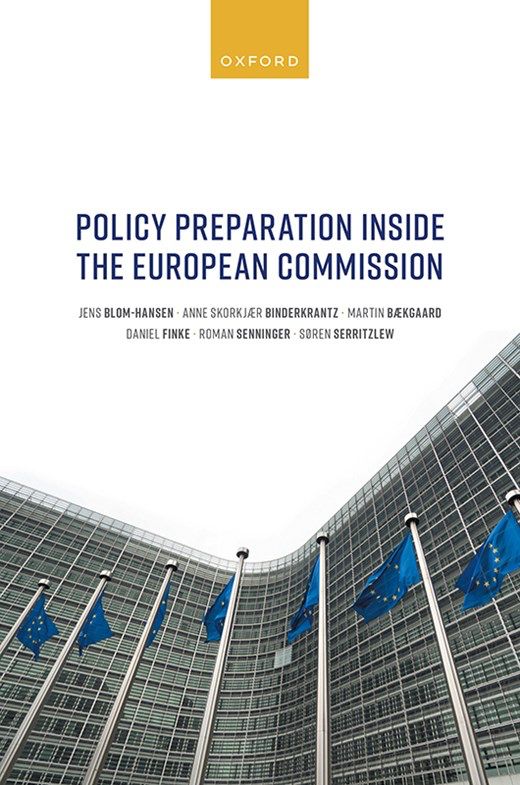
🚨 New book alert!
Policy Preparation Inside the European Commission is out with OUP @oxfordacademic.bsky.social
It’s about the behind-the-scenes stage of EU policymaking that shapes everything—yet rarely gets the spotlight: how the Commission prepares its proposals.
Link: doi.org/10.1093/9780...
01.05.2025 08:39 — 👍 53 🔁 20 💬 3 📌 1
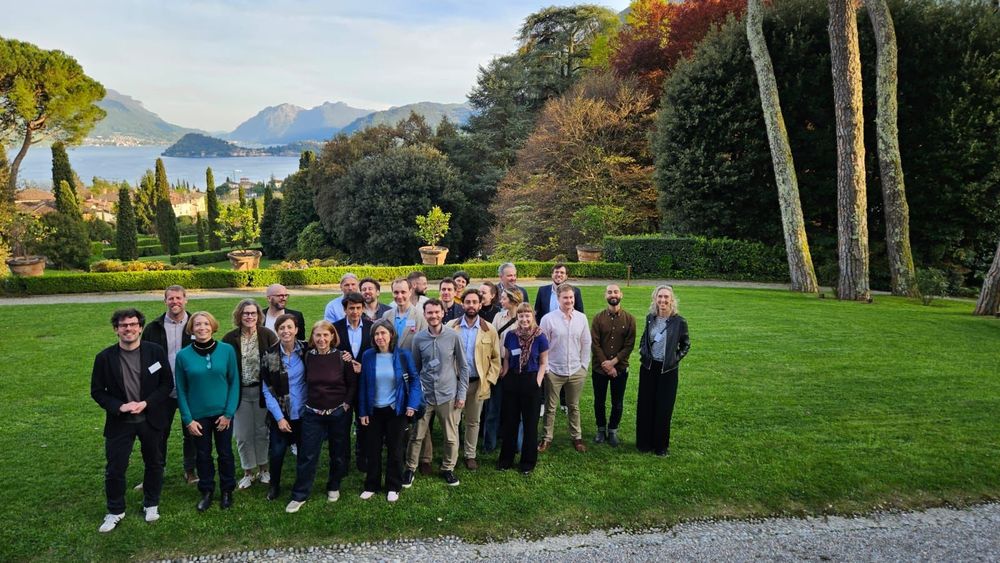
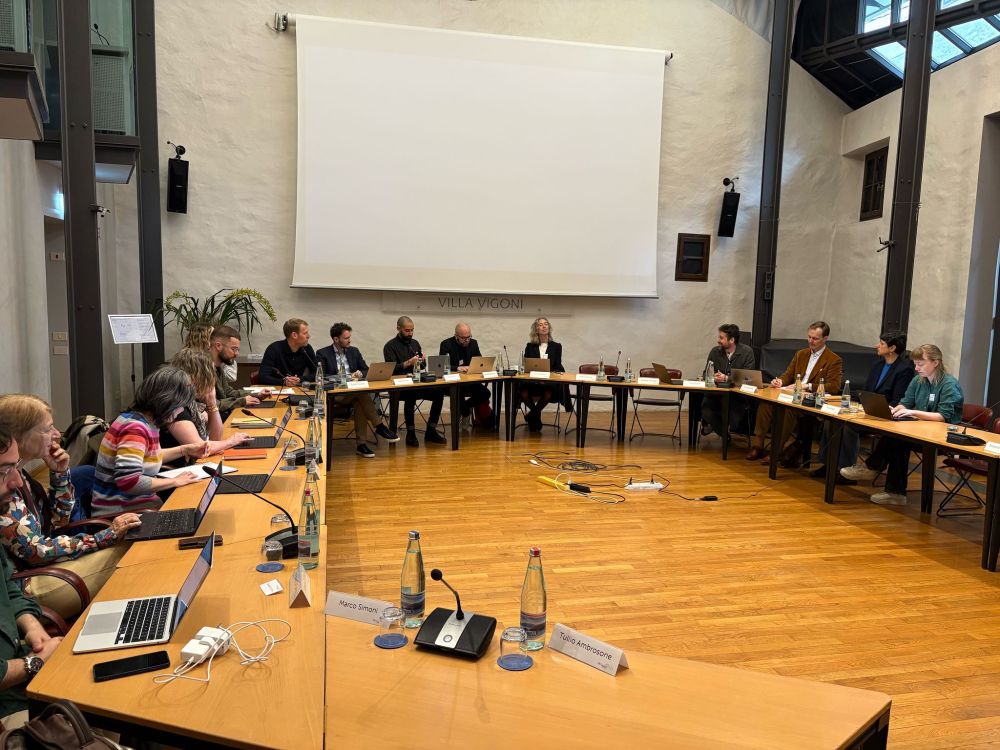
Very grateful for two days of collective thinking on the EU’s geoeconomic challenges
Huge thanks to my fab co-organizers @ankehassel.bsky.social @katemcnamara.bsky.social @donatodc.bsky.social @trgn.bsky.social + to the brilliant scholars who shared their insights about the challenges ahead
24.04.2025 14:29 — 👍 17 🔁 6 💬 0 📌 2
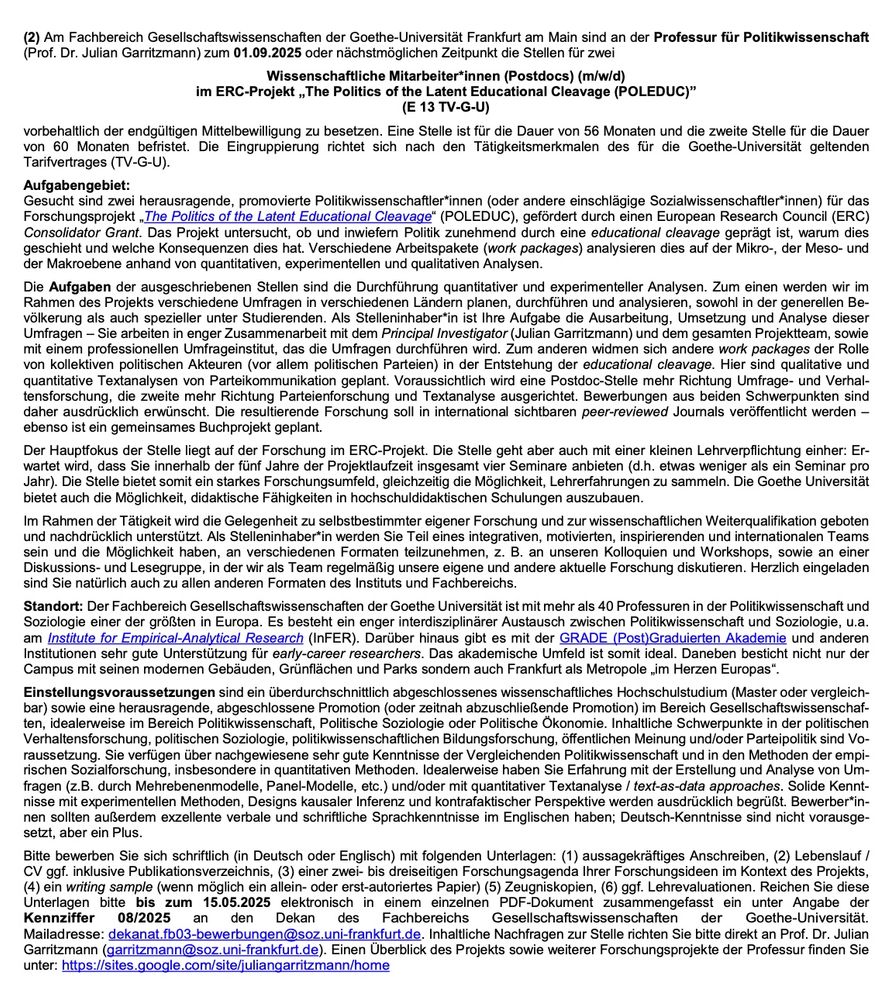
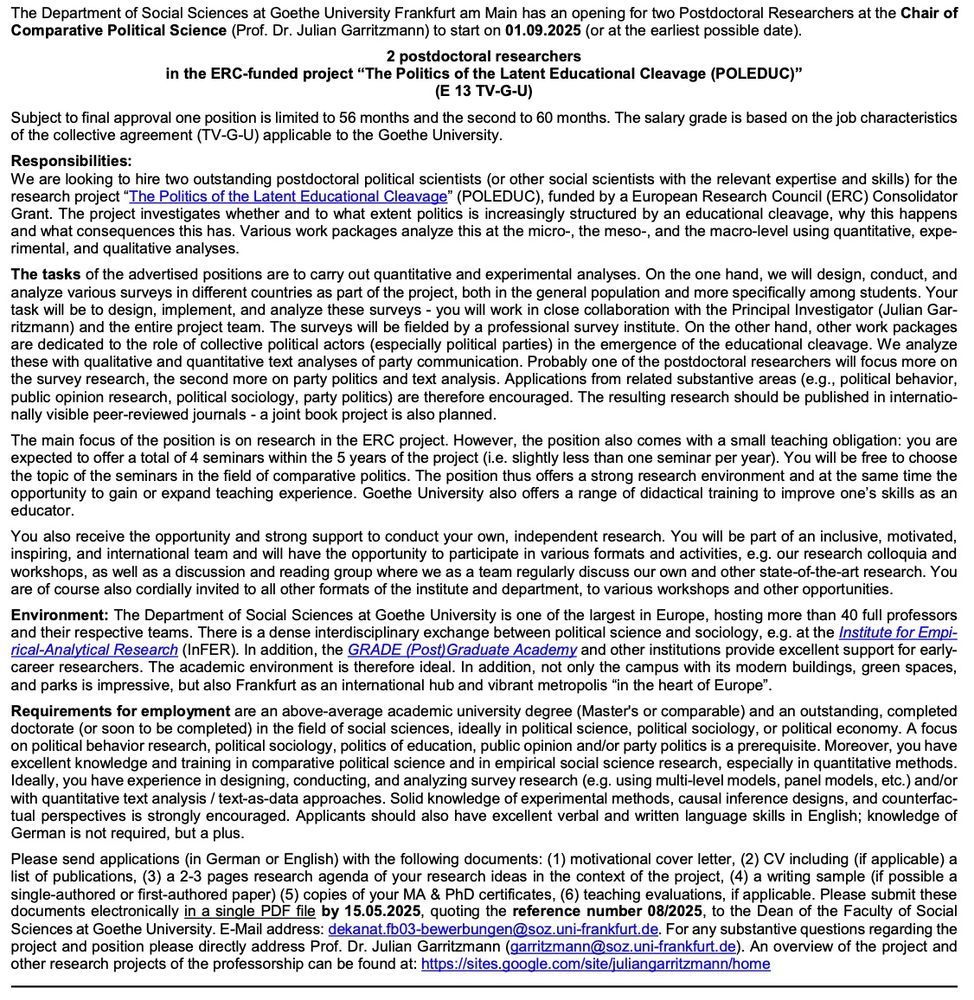
I AM HIRING 2 postdocs (5 years) in my @erc.europa.eu project "The Politics of the Latent Educational Cleavage" at @goetheuni.bsky.social @infer-frankfurt.bsky.social!
German call: www.fb03.uni-frankfurt.de/170856927.pdf
English call: www.goethe-university-frankfurt.de/170858269.pdf
Please share
17.04.2025 09:10 — 👍 101 🔁 118 💬 2 📌 9

PhD position in the field of Political Economy of Technological Change bei Hochschule für Politik München
The Professorship Political Economy (Prof. Dr. Timo Seidl) invites applications for a PhD position in the field of Political Economy of Technological Change
🚨 Want to join me at the Technical University of Munich? I’m hiring a PhD student (100%) in the area of the political economy of technological change!
📅 Apply by 18 May | Start Date: July (flexible)
🔗 More info & how to apply: hfp.heyrecruit.de?page=job&id=...
❓Reach out if you have any questions
07.04.2025 19:58 — 👍 29 🔁 21 💬 1 📌 1
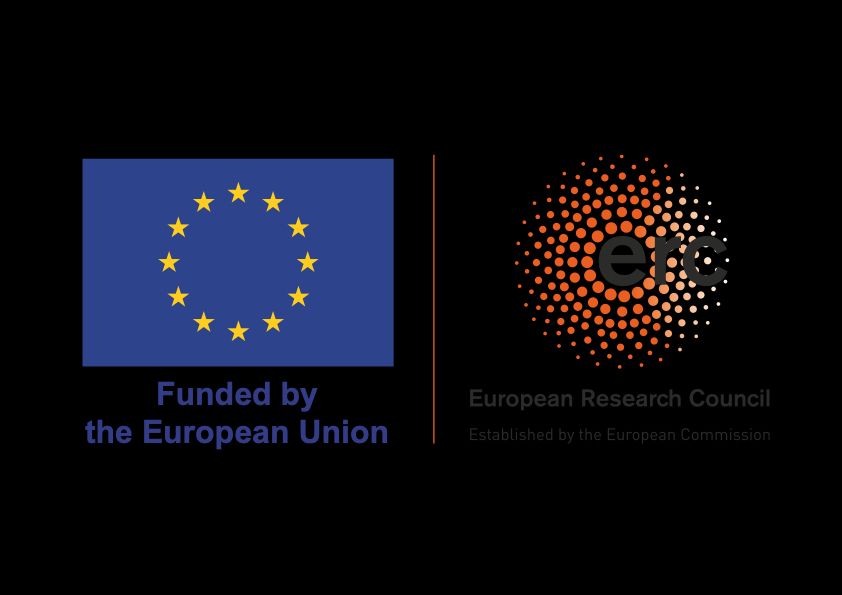
⭐I am looking for 2 PhD candidates w/ focus on qualitative representation research in my ERC project INCONEX at University of Salzburg!
On the project: sites.google.com/view/inconex...
Applications due: 2 May 2025
Full ad: sites.google.com/view/inconex...
#EUsky #poliscijobs #qualitativemethods
07.04.2025 05:37 — 👍 70 🔁 63 💬 1 📌 5
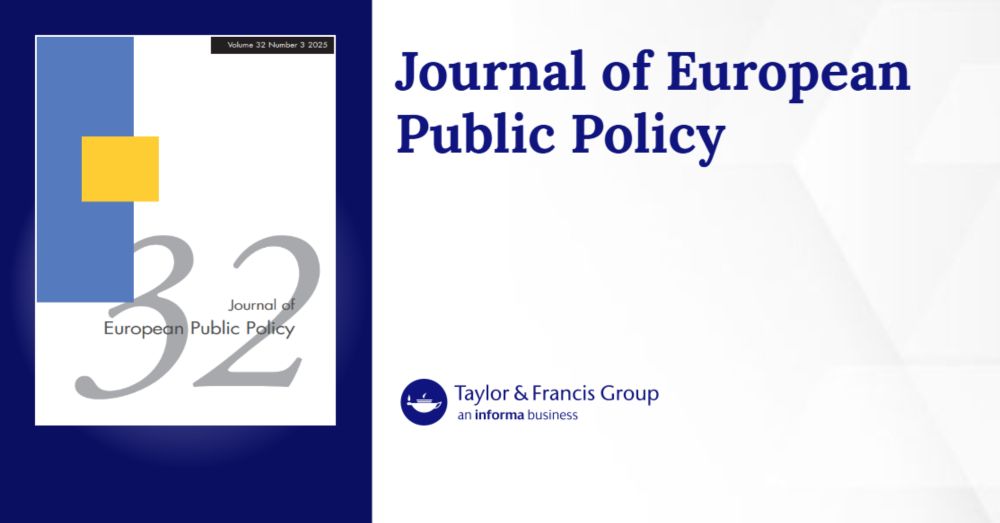
The politics of European competitiveness in the twin transition
Explore the article collection: The politics of European competitiveness in the twin transition. Published in Journal of European Public Policy.
📢 New JEPP collection 📢
One of Europe's toughest 🥜 to crack? Balancing the green and digital transitions while staying competitive. Martin B. Carstensen and Berthold Rittberger bring together the latest JEPP collection on European competitiveness in the twin transition 👇
03.04.2025 19:01 — 👍 8 🔁 7 💬 1 📌 1
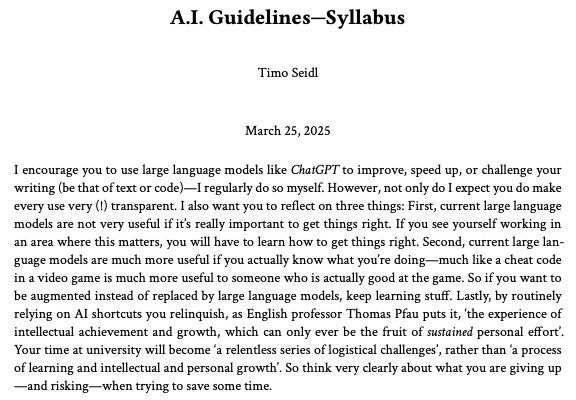
As the new semester is approaching (at least here in Munich), I thought it might be a good time to reshare my course guidelines on the use of A.I.
Perhaps you find it useful or have some comments on what I'm missing here (this is work in progress of course).
🔗 www.timoseidl.com/blog/seidl-a...
25.03.2025 13:56 — 👍 7 🔁 1 💬 0 📌 0
For everyone interested in working with computational tools, this is an amazing Postdoc position at the Political Science Department in Aarhus
If you have any questions, feel free to reach out to me.
25.03.2025 09:14 — 👍 5 🔁 5 💬 0 📌 0
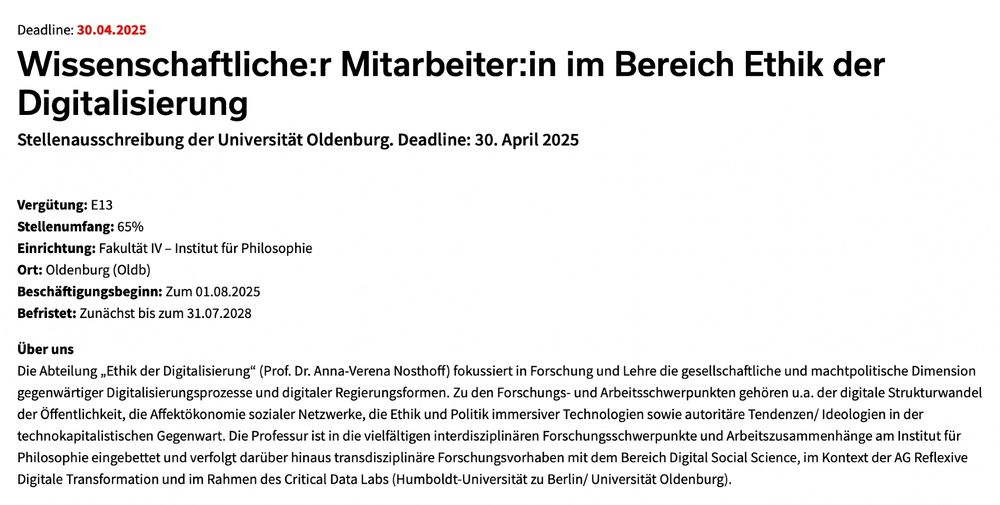
Ich habe eine Stelle als Wissenschaftliche:r Mitarbeiter:in (@criticaldatalab.bsky.social / Uni Oldenburg) zu vergeben und freue mich sehr über Bewerbungen. Bewerbungsschluss ist der 30.4., Fragen gern an mich: www.soziopolis.de/ausschreibun...
24.03.2025 05:59 — 👍 54 🔁 39 💬 3 📌 2
Political Economy & Climate change mitigation @PIK_Climate Professor Political Economy of Climate Policy @tum.de #carbonpricing #inequality #coal & more ..
Alternately Defiant, Dispirited, and Despondent. Without illusions but not disillusioned. Focus on Climate, Inequality and Development.
I co-edit the Polycrisis project and newsletter https://www.phenomenalworld.org/series/the-polycrisis/
Postdoc @stanfordnlp.bsky.social / previously @milanlp.bsky.social / Computational social science, LLMs, algorithmic fairness
Postdoc at HfP, TUM. Political economy, digital authoritarianism, algorithmic governance. I work with data. Views are mine.
www.davidkarpa.com
Pol Sci at ETH Zürich || Previously EUI & Oxford
EU Fiscal and Investment Policy Fellow @Jacques Delors Centre, Berlin | PhD @thehertieschool | She/her
PhD researcher and lecturer at EUF (Flensburg), College of Europe alumna. Current research #EUCommission #EUbudget #MFF
European Political Economy and Social Research | Postdoctoral Researcher Saarland University.
Political economist at LSE European Institute. Reports and Surveys co-editor at Political Quarterly. Into narrative, economic ideas and the comparative politics of crisis. Views all mine
Product Manager @Wüest Partner (Zürich) | ex-postdoc @IPZ_ch in computational social science | data, technology & society
http://maelkubli.ch
public opinion, behaviour, attitudes, &c.
Associate Prof, @sotonpolitics.bsky.social; Assoc. Editor, @poqjournal.bsky.social & @jeppjournal.bsky.social
ColU, Pompey, music, books, & pubs
https://djdevine.org
The National Bureau of Economic Research is dedicated to conducting and disseminating nonpartisan economic research.
nber.org
Research Fellow MZES University of Mannheim
Post-Doc @Goethe-Uni Frankfurt
https://www.fb03.uni-frankfurt.de/181439863/Dominik_Piétron
PhD researcher, University of Salzburg
Centre of European Union Studies (SCEUS)
European Parliament | EU trade policy | European governance | Geopoliticization | Text-as-data
Professor, LSE | Head of the Department of Government | President of EPSS @epssnet.bsky.social | Chair of EES @eesresearch.bsky.social | Co-Director of POAL @poalab.bsky.social | Fellow of the British Academy | Author of Tribal Politics (OUP)
Professor of Political Science | University of Cologne | ERC MINORITYRULE | svenoliverproksch.com
We monitor policies that affect global trade.
https://www.globaltradealert.org/








